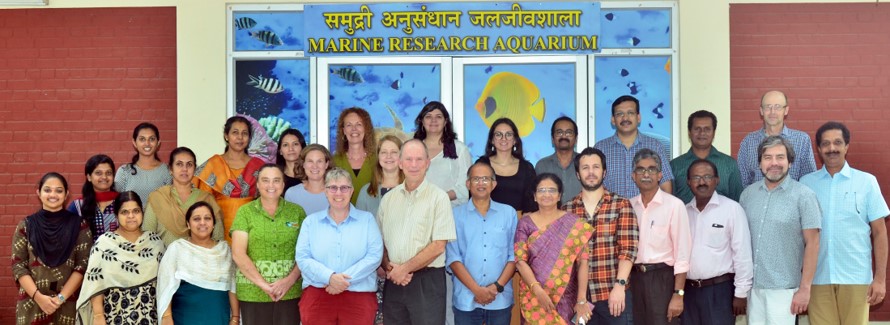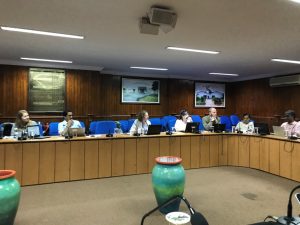IFOP participated at ecosystemic project meeting led by CSIRO from Australia
November 13th, 2019The activity was carried out in India and was attended by scientists from several research centers, from United States, the National Oceanic and Atmospheric Administration-National Marine Fisheries Service (NOAA), from India, India’s Central Marine Fisheries Research Institute (CMFRI), from Chile, Fisheries Development Institute (IFOP) and Fisheries of Chile Undersecretariat and The Commonwealth Scientific and Industrial Research Organization (CSIRO) of Australia
Between October 29th and November 1rst, the third Lenfest project working group meeting was held at Central Marine Fisheries Research Institute (CMFRI) in India: “Reference points for ecosystemic evaluation: practical management of ecosystem-based fisheries indicators and guidelines”
The meeting brought together representatives of international research teams from Chile, Australia, the United States and India, to examine historical time series of specific indicators, based on science, of the structure and function of selected ecosystems as a case study in each country, (being the ecological system associated with anchovy fishery in Atacama and Coquimbo regions for Chile) and to develop landmarks or ranges for a variety of ecosystem types. The meeting also considered a discussion on working group’s final stages activities, particularly around various indicators simulation tests.
On Chile’s behalf , Dr. Carlos Montenegro, participated as representative of the project Scientific Committee and Head of IFOP ‘s Fisheries Evaluation Department. In addition, Alejandra Hernández and Nicole Mermoud attended Subsecretariat of Fisheries and Aquaculture.
Dr. Montenegro presented ecosystemic modeling advances developed by IFOP’s in collaboration with other research centers in the country . He said “We have been working hard to generate advanced human capital to use tools such as Ecopath with Ecosim, Size Spectra and Multispecies Production Models. These modeling approaches allow us to study systems of different degrees of complexity and their results allow us to have an integral vision of the system under study ”.

